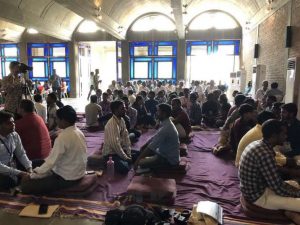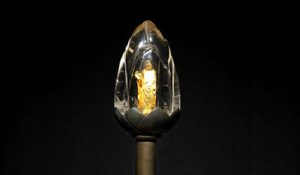
A new, small-scale study, published on 16 January in the open-access journal General Psychiatry, suggests that regular, deep meditation practiced over a period of years may be an active factor in transforming the gut microbiome and potentially reducing the risk of some physical and mental illnesses. The study was conducted by a team headed by Dr. Jinghong Chen from Shanghai Jio Tong University School of Medicine.
“In this study, we aimed to investigate the association between traditional long-term Tibetan Buddhist meditation and faecal microbiota, and to explore further whether meditation can impact human health by manipulating gut bacteria as a novel target,” the researchers stated. (General Psychiatry)
The researchers studied gut microbes in fecal and blood samples from a group of 37 Buddhist monks at Qiongke, Jiaqu, and Ezhi Temples in Tibet, and found substantial differences compared with samples from 19 lay residents living nearby.
This is the first research to analyze the fecal microbiota of Tibetan monks. The monks who participated in the study had been engaged in their practice for 3–30 years, and for a minimum of two hours each day.
The research team used an analytical tool called Phylogenetic Investigation of Communities by Reconstruction of Unobserved States (PICRUSt) to investigate potential chemical processes and pathways on which the variety of bacteria present in the samples might have an impact. Their conclusion was that the meditators had improved protective anti-inflammatory and metabolic mechanisms.
“We confirmed that the gut microbiota composition differed between the monks and control subjects,” the researchers reached this conclusion. “The microbiota enriched in monks was associated with a reduced risk of anxiety, depression and cardiovascular disease and could enhance immune function. Overall, these results suggest that meditation plays a positive role in psychosomatic conditions and well-being.” (General Psychiatry)

In the three months prior to the study, the researchers noted, none of the monks had consumed any substances that might affect the number or variety of gut microorganisms, such as antibiotics, probiotics, prebiotics, or anti-fungal medications.
According to stool sample examinations, the monks and their lay neighbors exhibited significantly different varieties and quantities of bacteria. Both groups were dominated by Firmicutes and Bacteroidetes species, as expected by researchers. But among the monks, Bacteroidetes and Prevotolla were seven times more present, along with a high volume of Megamonas and Faecalibacterium.
Apolipoprotein B and total cholesterol, two substances linked to an elevated risk of cardiovascular disease, were found to be markedly lower in blood samples from the monks than in control samples.
“Collectively, several bacteria enriched in the meditation group were associated with the alleviation of mental illness, suggesting that meditation can influence certain bacteria that may have a role in mental health,” the researchers said in their report. (General Psychiatry)
In modern clinical contexts, meditation is already being utilized to treat mental health conditions such as depression, anxiety, substance misuse, traumatic stress, eating disorders, and chronic pain. According to the researchers, Tibetan Buddhist meditation can be considered a sort of psychological training, with roots in the traditional Indian medical practice known as Ayurveda.

The researchers also acknowledge the limitations of their work. Due to the unique conditions of high-altitude living and hypoxia, they said, it is possible for the participants to have diseases “which greatly reduces the enrollment ratio of collected samples.” The current study’s 16S rRNA sequencing approach also provides no direct information on functionally significant changes in the microbiota. Chen and his team suggested that a future study using metagenomic sequencing could overcome the latter restrictions in their results.
See more
Alteration of faecal microbiota balance related to long-term deep meditation (General Psychiatry)
Buddhist Monks Meditate Their Way To Healthier Gut Bacteria (IFL Science)
Related news reports from BDG
Researchers Uncover Lost Eighth Century Japanese Medical Text
US Based Research Finds that Gen Z Are Changing What Faith Looks Like
Researchers Uncover Hidden History in China’s Ancient Dunhuang Caves
Tergar Meditation Community Announces Online “New Year’s Practice Retreat”
Research Suggests Individuals with Strong Buddhist Beliefs Are More Likely to Be Blood Donors
Dalai Lama Holds Dialogue with Russian Scientists on Research into Buddhist Thukdam Meditation
Related features from BDG
Integrating Meditation And Peace Work
Do I Need a Teacher to Practice Meditation?
Abstract Meditations and Artistic Contemplation, with Françoise Issaly
Book Review: Esoteric Theravada: The Story of the Forgotten Meditation Tradition of Southeast Asia













I find these kind of studies not very helpful because who meditates hours a day like a monk? It doesn’t apply to regular people.